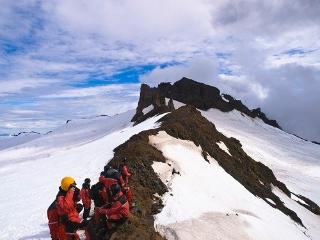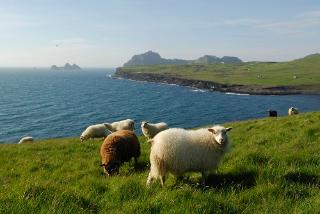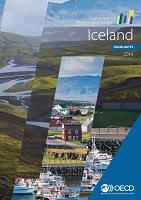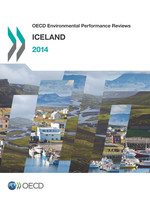Iceland has one of the world’s most pristine natural environments and its glaciers, volcanoes and hot underground springs bring major economic benefits via renewable energy and tourism. Continued growth in power generation for aluminium smelting and in tourist numbers must be managed carefully to preserve these natural assets.
This is the third OECD review of Iceland’s environmental performance. It provides Iceland’s policy makers with a wide-ranging assessment of environmental progress and policies.
Read the report on the OECD iLibrary
highlights
Iceland has a very small, open economy, built on plentiful and
The deep recession sparked by the 2008 financial crisis reduced some pressures on the environment, but also affected the resources available for environmental programmes and related infrastructure investment. At the same time, it spurred interest in the transition towards a greener economy.
The natural environment is a key asset for Iceland’s recovery: it provides abundant hydro and geothermal energy reserves, as well as
Opportunities
A sound policy framework for environmental management and sustainable development.
Innovative policy approaches to managing natural resources such as fish and renewable energy sources.
A long tradition of public participation in decision making.
Historically low levels of air and water pollution.
A unique natural environment, with pristine wilderness, hot springs, lava fields and glaciers, which attracted more than 600,000 visitors in 2000.
A very low-carbon energy mix, with the highest share of renewables in the OECD.
Challenges
Financial constraints and insufficient local administrative capacity to implement environmental policy.
An unbalanced industrial structure that relies heavily on cheap, clean electricity to power energy-intensive industry.
A legacy of acute soil erosion, worsened today by subsidies that encourage overgrazing.
Growing and highly seasonal tourist arrivals, which exert pressures on fragile ecosystems and infrastructure designed for a small population.
Potential land-use conflicts between renewable power development and nature-based tourism.
Lack of viable alternatives to road transport for domestic passengers and freight.
data visualisation
<a href='#'><img alt='Dashboard map ' src='https://public.tableausoftware.com/static/images/Ic/Icelandenergy5/Dashboardmap/1_rss.png' style='border: none' /></a>
more information
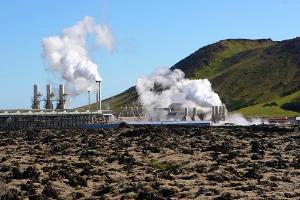 cheap renewable energy, aluminium industry, tourism and fishing. Its 324,000 people enjoy a high standard of living and a good environment, with excellent water quality, low air pollution and easy access to uncontaminated nature.
cheap renewable energy, aluminium industry, tourism and fishing. Its 324,000 people enjoy a high standard of living and a good environment, with excellent water quality, low air pollution and easy access to uncontaminated nature. 